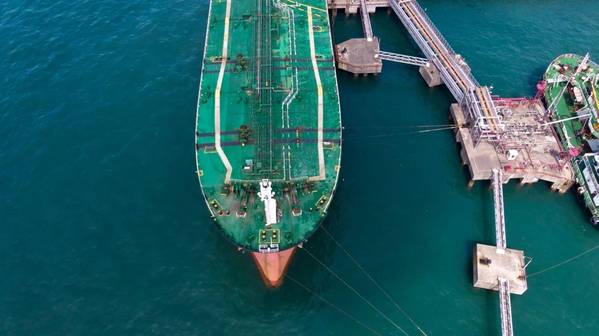
Dutch and German oil refineries have snapped up all four cargoes of Chadian Doba crude in April to profit from soaring demand for cleaner marine fuel in Europe from shipping companies including Maersk, according to shipping data and trade sources.
Asia was the main destination of Doba cargoes prior to April, as China and Malaysia received several cargoes, according to Kpler.
In May, the International Maritime Organization designated the Mediterranean Sea as an Emission Control Area, requiring ships to switch to 0.1% sulphur fuels from 0.5% previously.
As a result, exports to Europe of Doba crude soared. Heavy, sweet Doba grade is particularly suitable for making ultra-low sulphur fuel oil (ULSFO) with a maximum sulphur content of 0.1%.
Doba is ideal for ULSFO blending, and rising exports to Germany and the Netherlands in April could be a move to capture the anticipated surge in ULSFO, said Rystad Energy analyst Valerie Panopio.
"There aren't very many grades with the same properties as Doba Blend, even harder to find is one with ample and steady supply," she said.
Chad exports around 130,000 barrels per day of the grade and has been regularly shipping it to Asia, Europe and the Middle East, shipping data from Kpler shows.
There were four Suezmax vessel fixtures in April to deliver about 127,000 bpd of Doba to Europe, which would mark the highest volume on that route in a year, according to Kpler.
Two oil refineries in Europe including Dutch storage firm Chane's Rotterdam plant and HES International's Wilhelmshaven unit in Germany have been the only European receivers of Doba crude since January, Kpler data shows.
Maersk Energy Markets, the Danish shipping company's bunker buyer, has a deal to buy ULSFO from Chane's Rotterdam plant to help make its fleet comply with new requirements in the Mediterranean, Maersk said.
Chane and HES International did not respond to emailed requests for comment.
(Reuters)



